Uncategorized
Journalists barred from covering Nigeria, Sierra Leone match

The Confederation of African Football has stated that no journalists or supporters would be allowed inside the Samuel Ogbemudia Stadium, Benin City for Friday’s 2022 Africa Cup of Nations qualifying match between the Super Eagles of Nigeria and the Leone Stars of Sierra Leone.
In the guidelines communicated to the Nigeria Football Federation, CAF instructed, under Media Operations, that there would be no mixed zone, virtual press conference only if possible (media officers from both teams only), and that only the TV channels with the rights will be allowed flash interviews.
Also, only photographers of participating teams would be allowed at the match.
The above puts to rest all previous speculations regarding having spectators at the match venue, and whether members of the media would be allowed into the arena.
The NFF’s Director of Competitions, Bola Oyeyode, on Monday said only individuals accredited by the NFF would be allowed inside the Samuel Ogbemudia Stadium for the Day 3 qualifier, which will kick off at 5pm Nigeria time.
Ministry of Youth and Sports Development had insisted that Nigeria’s game against Sierra Leone will be played without fans.
In a letter to the Deputy Governor of Edo State, Philip Shaibu, the ministry insisted that the game would be played without fans in adherence to the directives from the Presidential Task Force on Covid-19.
“The ministry wishes to bring to your urgent attention that in compliance with the condition of no gathering agreed upon by the ministry and the Presidential Task Force on Covid-19 before the Federal Government opened up football and contacts sports, the match between Nigeria and Sierra Leone will not have any audience,” the letter stated.
Uncategorized
Ex-Senate President Pius Ayim dumps PDP for APC
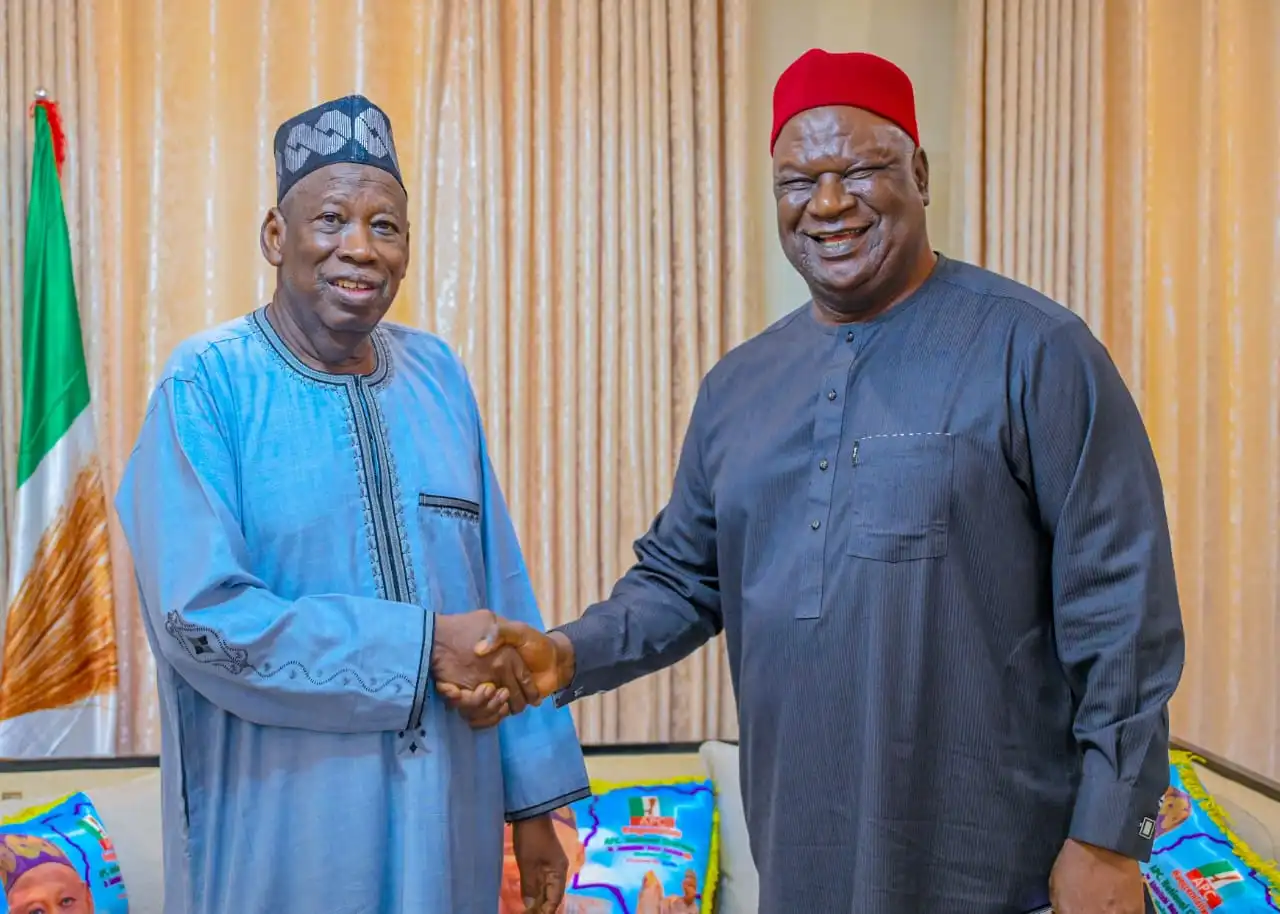
Ex-Senate President Pius Ayim dumps PDP for APC
Former Senate President, Anyim Pius Anyim, on Saturday formally joined the ruling All Progressive Congress(APC), dumping the Peoples Democratic Party (PDP).
He announced this at the Pa Oruta Ngele Township Abakaliki during the Grand Finale of the APC local government election Campaign.
Ayim led a host of other notable personalities across other political parties including former state and National Assembly members, former governorship candidate of Labour Party, Edwin Nkwegu, Senator Obinna Ọgba, former national and state assembly candidates, with hundreds of their supporters to join the party.
The new members were received by APC National Chairman, Dr Abdullahi Ganduje, Chairman of Progressive Governors Forum, Governor Hope Uzodinma of Imo State, Governor Francis Nwifuru of Ebonyi State and Minister of Works, David Umahi, state chairman of the party, Stanley Meghan, and other leaders of the party.
Speaking at the event, the Minister of Works, David Umahi, praised Anyim for all the support he gave to the APC during the 2023 elections.
He also thanked President Bola Tinubu for all the support given to him when he faced legal battles after joining the party.
He said, “President Tinubu called me to come and see him and when I came he carried me in his car personally to meet a Senior Advocate of Nigeria who handled our case.”
Minister Umahi noted that he faced serious attacks and conditions for deciding to join the APC but was grateful that today the party had become the beautiful bride of all in the state and southeast.
Uncategorized
SEC okays RT Briscoe’s N10bn fund raising plans
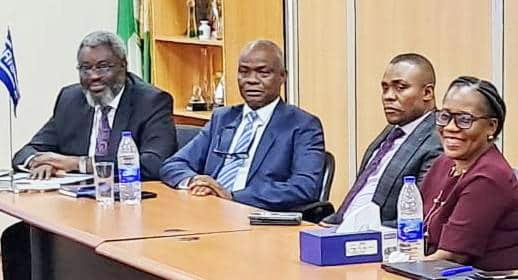
SEC okays RT Briscoe’s N10bn fund raising plans
RT Briscoe Nigeria Plc has secured approval of the Securities and Exchange Commission to raise N10bn through a newly introduced savings and investments scheme.
Group Managing Director/Chief Executive Officer of RT Briscoe Nigeria, Mr Seyi Onajide, disclosed this in Lagos during an interactive session with journalists.
He also spoke on the company’s commencing the conversion of petrol/diesel vehicles to run on compressed natural gas.
Onajide in a statement said the savings and investment scheme would allow the rich, semi-rich, and the poor to participate in the N10bn fund raising.
The scheme is open to both existing RT Briscoe’s 43,000 share holders and non-share holders.
Onajide said the investment would go to a trustee, already set up by SEC, who would keep the invested sum with interest until the trustee calls a meeting of all subscribers to decide if their money should be converted to Briscoe shares or not.
“The savings and investment initiative gives opportunities to all interested parties to grow funds either to buy Briscoe shares or not. There will be additional benefits for those who end up choosing to buy Briscoe shares,” he said.
He said RT Briscoe remained committed to meeting its debt repayment obligations to banks coming with interest and charges, but promised that the debt would be resolved before converting the savings into shares.
Uncategorized
Rear Admiral Madueke wants court to stop ex-wife Diezani from using his name
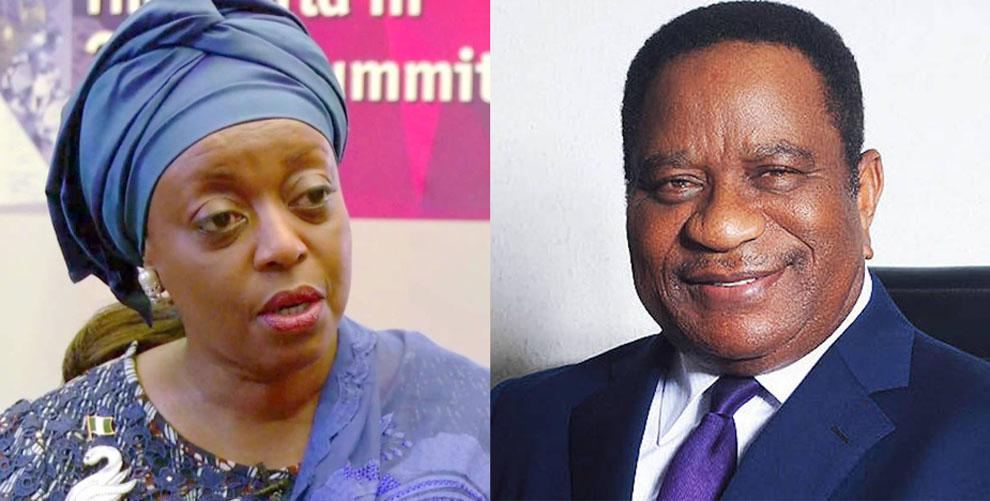
Rear Admiral Madueke wants court to stop ex-wife Diezani from using his name
Rear Admiral Alison Amaechina Madueke has petitioned a Lagos High Court to issue an injunction preventing his ex-wife, Diezani Alison-Madueke, from using his first name (Alison) and surname (Madueke) following their divorce.
He has requested that the court order Diezani to revert to her maiden name, Diezani Kogbeni Agama, and to publicly announce this change in newspapers in both Nigeria and the United Kingdom.
The petition, filed under suit number LD/15144HD/2024, claims that Diezani’s continued use of his name poses significant legal and financial risks to him due to her ongoing criminal trials in Nigeria and the UK. Alison Madueke cited that they ceased cohabiting in May 2015 following her ministerial appointment.
READ ALSO:
- How Dasuki paid Fayose N1.2bn to avoid traces – Court witness
- Police kill two bandits in Benue shoot-out
- Customs officials beat Ogun NNPC station attendants over N100
Diezani later filed for divorce in November 2021, which was finalized on April 13, 2022, by Hon. Justice A.A. Ozegya at the High Court of Nassarawa State, Mararaba Gurku Judicial Division.
The retired naval officer expressed that the ongoing association of Diezani with his name is causing embarrassment and damage to his reputation and public image.
Despite the legal dissolution of their marriage, Diezani continues to use his name without justification or consent, creating a false impression of an ongoing relationship.
Alison Madueke has also stated that he had instructed his solicitors, Messrs Foundation Chambers, to send a formal letter to Diezani on December 14, 2023, requesting her to cease using his name and revert to her maiden name.
The petition seeks to enforce this change formally and to ensure public notification of her name reversion.
Rear Admiral Madueke wants court to stop ex-wife Diezani from using his name
-

 News2 days ago
News2 days agoNLC can’t withdraw from protest it didn’t organise – Ajaero
-

 News3 days ago
News3 days agoNorthern group attacks Reps Minority Caucus for demanding Nnamdi Kanu release
-
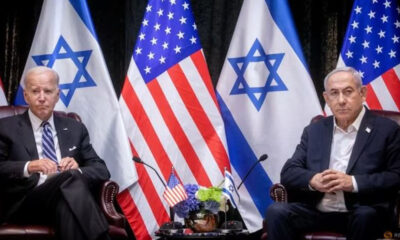
 International16 hours ago
International16 hours agoNetanyahu, Biden hold talks over tense Gaza ceasefire
-

 News2 days ago
News2 days agoFG unveils training programme for 1,000 Nigerians in AI, blockchain
-

 News2 days ago
News2 days agoMinimum wage: Akpabio says domestic workers can’t earn less than N70,000
-

 Africa3 days ago
Africa3 days agoDozens arrested in Uganda anti-government protests
-

 News3 days ago
News3 days agoDangote refinery: MAN cautions against demarketing local investments
-

 metro2 days ago
metro2 days agoWanted Lagos drug baron, Temo, arrested

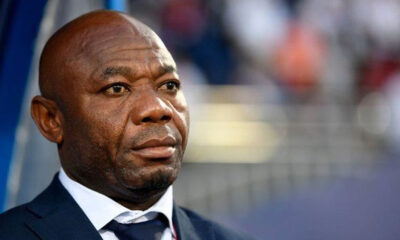












You must be logged in to post a comment Login